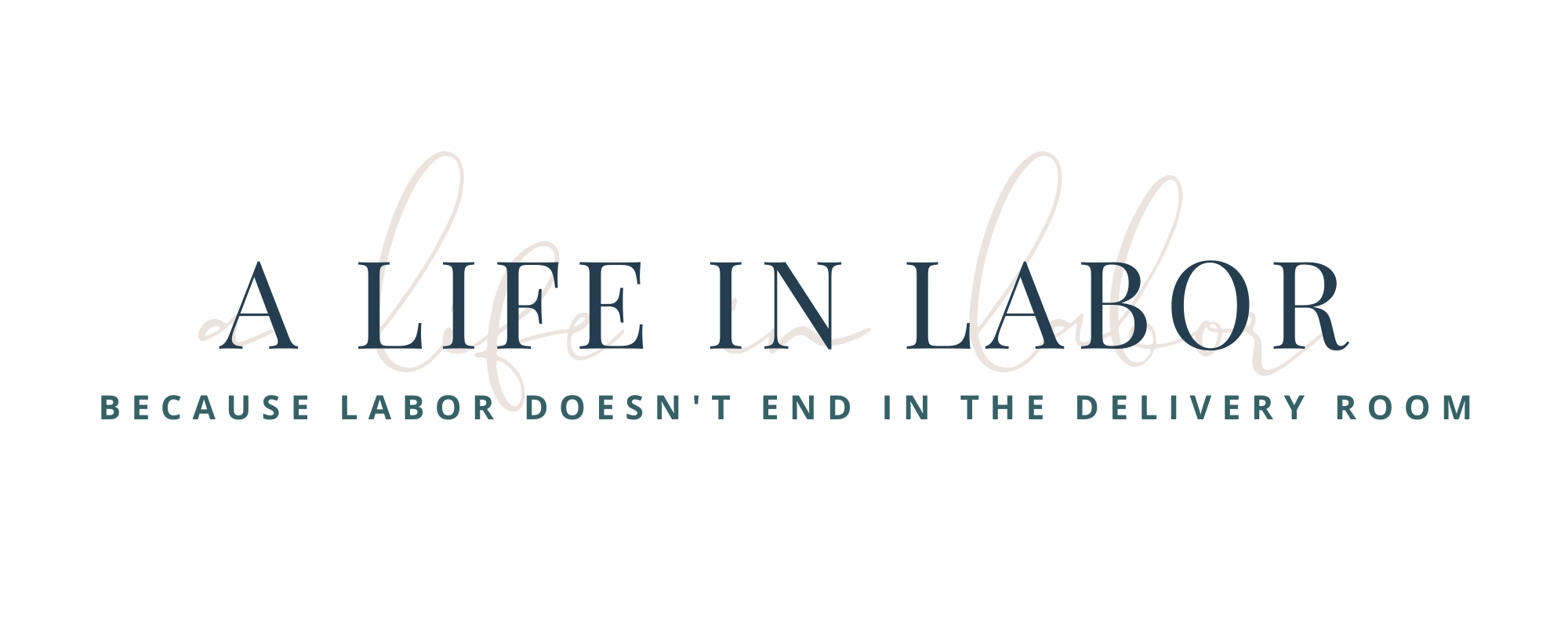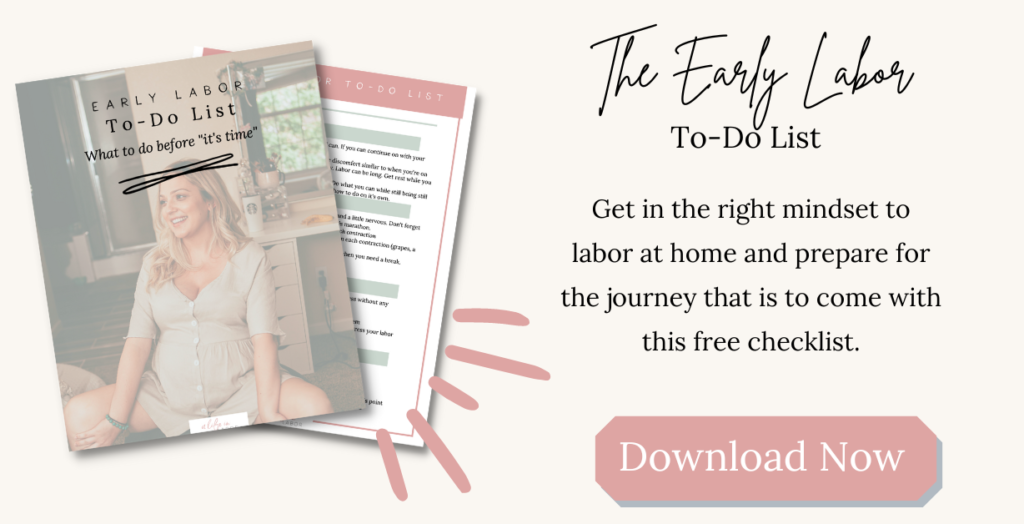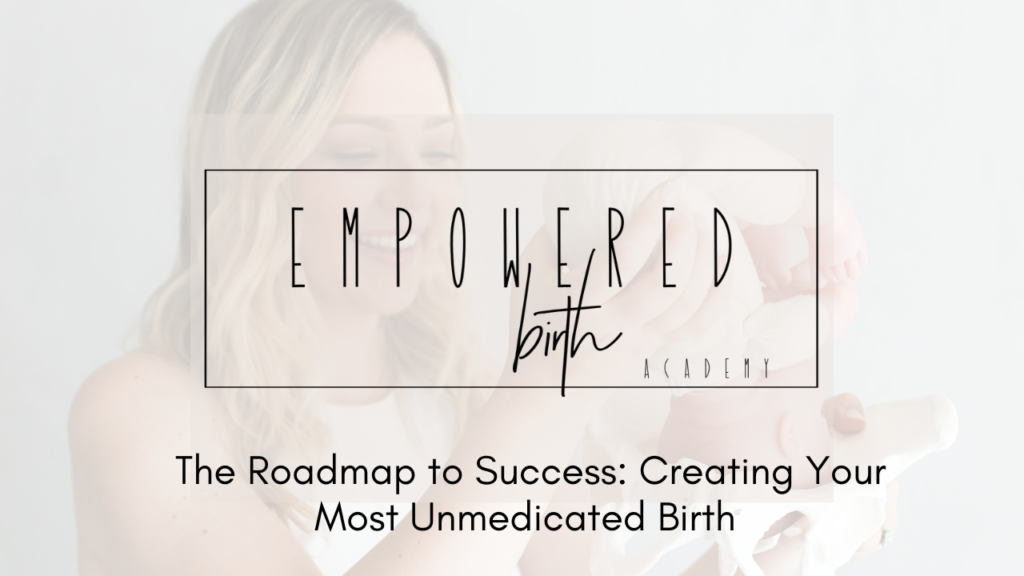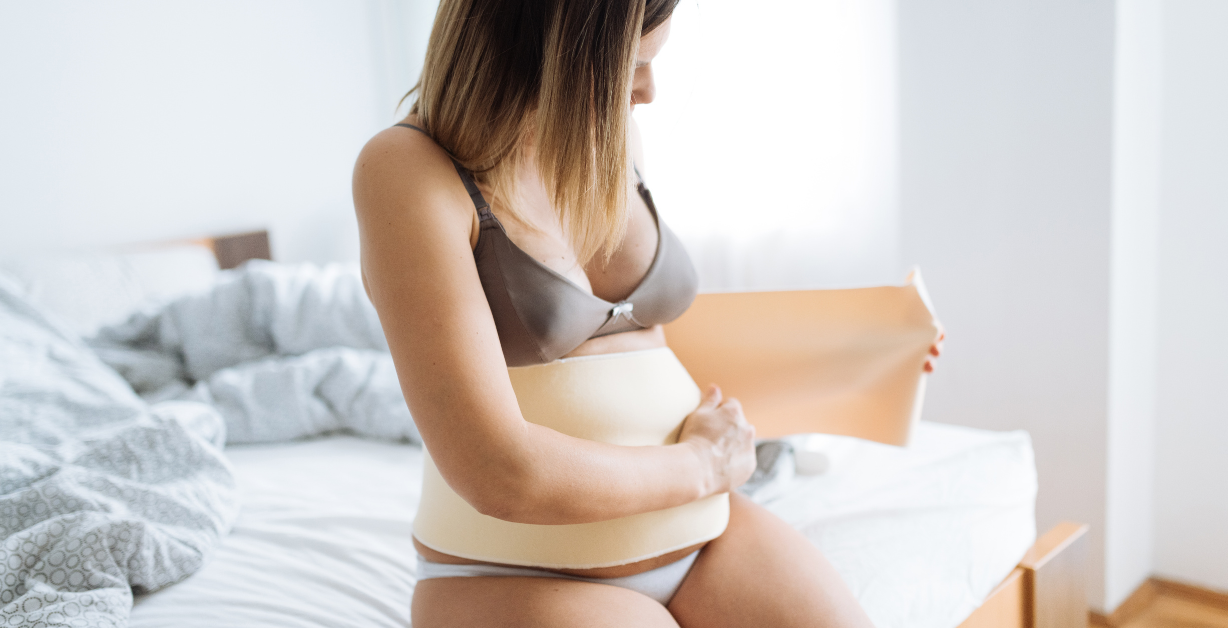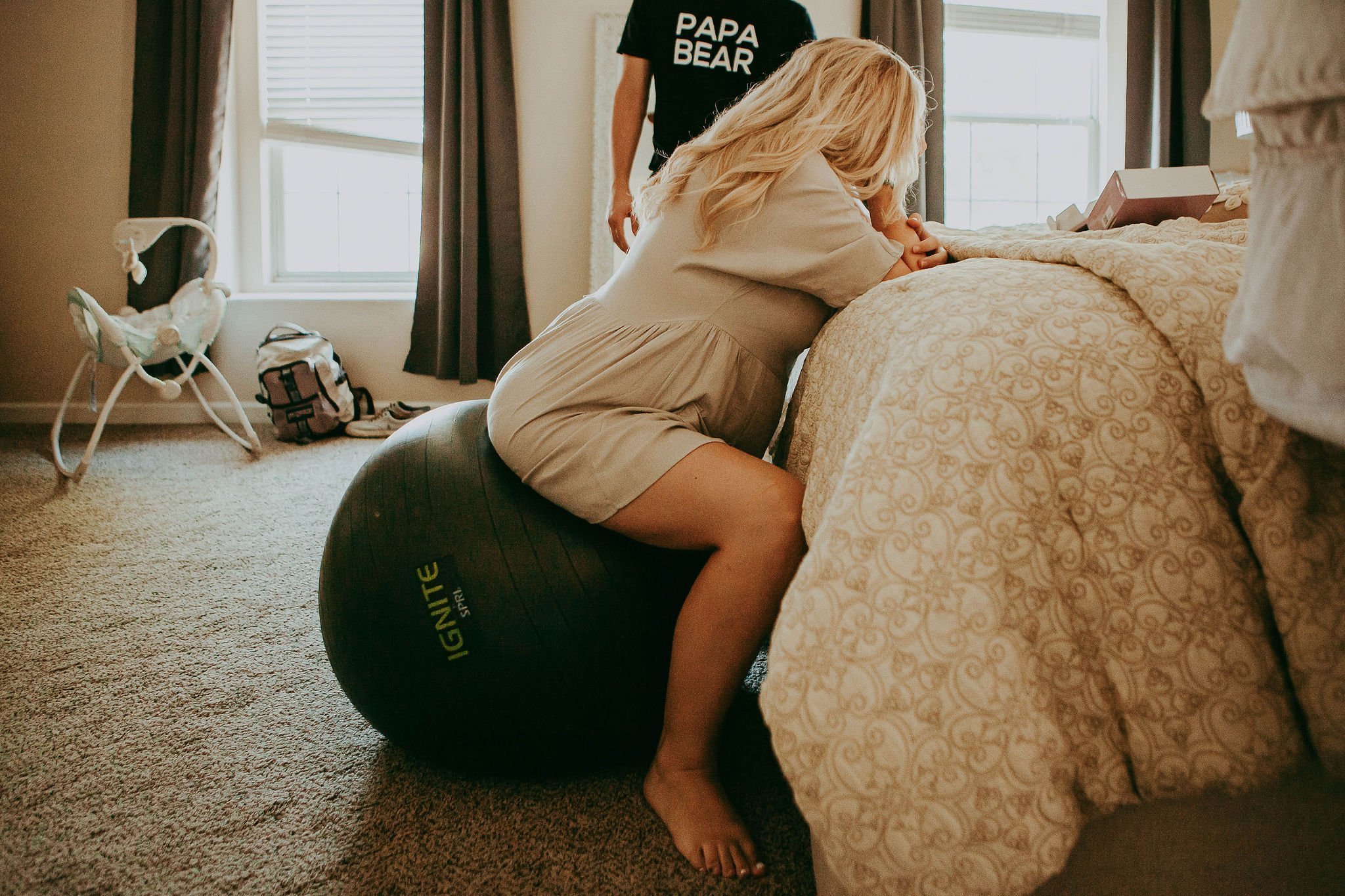Pain During Pregnancy: What You Need To Know
Is pain during pregnancy a little more common than you anticipated? Who knew that there would be so many sources of possible discomfort while growing and carrying a human in your belly, right? On the bright side, most sources of pregnancy pain can be normal and even expected.
Are you wondering if the pain that you're feeling in your pregnancy is normal or something to be concerned about? You're in the right place.
In this post we are going to go over all of the most common sources of pain during pregnancy. I'm going to dive into what they are, what they mean, and what you should do when you experience them.
Let's dive in.


Please note: The views on this website are personal opinions only and do not represent the opinions or policies of any provider or institution that I am affiliated with. I am not giving medical advice. Information on this website is not intended to diagnose, or treat any form of any disease. This article is for informational and entertainment purposes only. I am only telling you what my experiences are. Please refer to my Disclaimer Page for more information
This post may contain affiliate links. Learn more here
Pain During Pregnancy
Although pregnancy can be beautiful and enjoyable, there are times during each pregnancy where mama isn't quite feeling their best.
Many sources of pain during pregnancy are different types of growing pains. Others are pains that signal progress. And of course, there are certain pains during pregnancy that are signs that something might be wrong. It's important to know the difference.
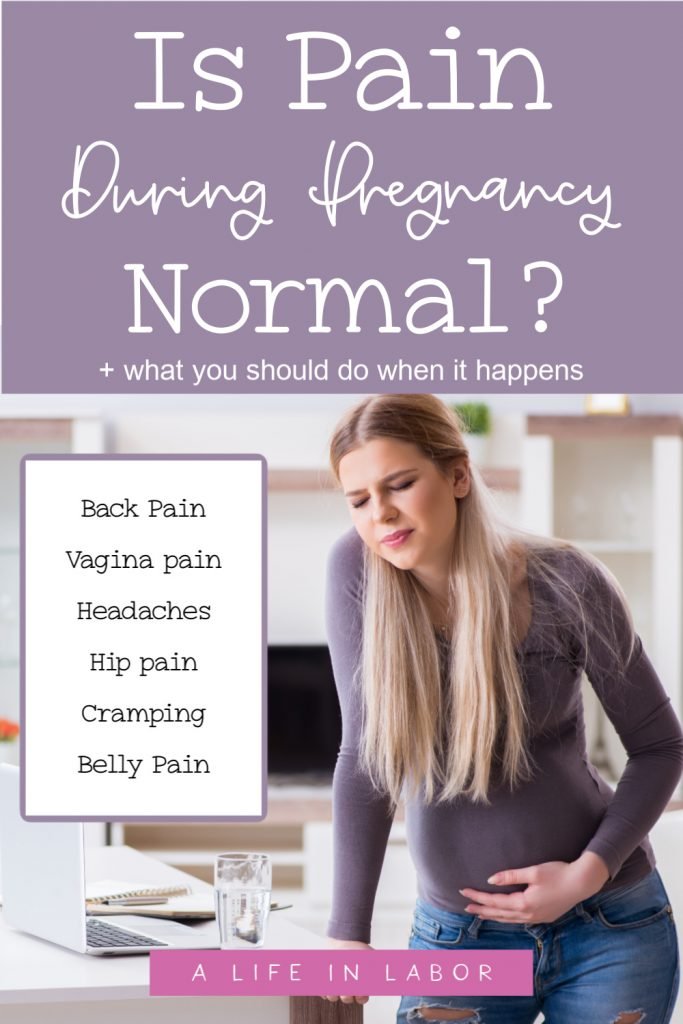
Round Ligament Pain in Pregnancy
Do you ever roll over in bed, get off the couch too quickly, or exit the car the wrong way and suddenly find yourself doubled over in pain? When this happens, are you feeling a sharp, shooting pain on one or both sides of your low belly that lasts for less than a minute? This excruciating but temporary pain is probably round ligament pain.
The round ligaments are a pair of ligaments in your pelvis that help support your uterus. Pain in this area is caused by the tightening or spasm of these ligaments during rapid movement or vigorous activity.
Round ligament pain feels like a sharp or jabbing pain in one or both sides of your lower belly and groin area. It can stop you in your tracks and feel really severe when it happens. Luckily it typically subsides in less than a minute.
Round ligament pain is very common throughout pregnancy and can start as early as 12 weeks or so.
There is nothing that needs to be done to treat round ligament pain but in order to help avoid it you can do light stretching and change positions slowly.
Vaginal Pain in Pregnancy
Also lovingly referred to as “lightening crotch”, this vaginal pain is fairly common in pregnancy.
If you sometimes feel sudden shooting pains in your vagina, you aren't alone.
This pain can be caused by a number of normal things happening during your pregnancy such as:
- Hormone fluctuations
- Baby movement
- Pressure from your growing baby or displacement of internal organs
- Nerve compression
- Low Magnesium levels
- The baby “dropping” lower into the pelvis
Although vaginal pain during pregnancy isn't typically something that you need to worry about, you may want to find some relief. In order to give yourself some comfort you can try some of these things to prevent and relieve vaginal pain:
- Stay active. Pregnancy yoga, walking, and light stretching can help.
- Get adequate rest.
- Use a pregnancy support belt to get some of the pressure of baby off of your pelvis. This is the one that I used throughout both of my pregnancies. You can get a 10% off code when you subscribe to my weekly newsletter below!
- Get an appointment with a chiropractor to relieve some nerve pressure
- Talk to your doctor about taking a Magnesium supplement.
Sciatic Pain during pregnancy
Have you started experiencing a dull, aching pain that starts in your hip and travels through your butt, thigh, and possibly even all the way down to your foot? It might be sciatica pain.
This pain is common in the third trimester of pregnancy as the baby and your belly are growing larger and putting more pressure onto the sciatic nerve.
Sciatica can be extremely painful but again, doesn't usually pose any risk to your pregnancy.
A couple things that you can do to help relieve some of this uncomfortable nerve pain are:
- Hot and cold therapy to soothe discomfort
- Use an orthopedic seat cushion to relieve pressure
- Use an knee pillow designed to relieve Sciatica pain AND is LOVED by pregnant women who always feel like they need to have a pillow between their knees when they lie on their side.
- Sleep with a pregnancy pillow to keep everything in alignment
If you are experiencing sciatic pain that is getting progressively worse as the months go on, you may want to talk to your doctor about how you can modify your activity to get you some relief. Especially if you are having a hard time walking or doing daily activities as a result of sciatic pain during pregnancy.

Back Pain During Pregnancy
Most pregnant mamas have back pain at one point or another while carrying their baby in their belly. Whether the back pain starts early in pregnancy or only presents itself when you're in labor, it's pretty expected for the most part.
Let's talk a little bit about what might be causing this back pain.
1. Weight gain during pregnancy is pretty unavoidable. When your body gains weight rapidly, especially when the majority of the weight is distributed in the front of your body, you're back is going to have to accommodate.
Although weight gain is going to happen, it's important that you make healthy choices for your body and gain an appropriate amount of weight in an appropriate amount of time during your pregnancy.
2. So, again, certain things are unavoidable. One of those being a growing bump. That bump is going to cause some changes in your posture, putting strain on your back. Haven't started waddling yet? Oh, you will. And when you do, you might notice that at the end of the day when you finally land in bed, your back will start talking to you a whole lot more.
You can respond to those cries by sleeping in good body alignment, exercising, getting enough rest, and stretching.
3. If the back pain comes and goes in waves along with some cramping, this type might actually be an early sign of labor. If you are 37 weeks or more, then there is nothing to worry about. My advice to you would to just get some R&R while you still can. On the other hand, if you are preterm you should hydrate, kick your feet up, and let your provider know if you're back pain is persistent or is accompanied by more than 6 contractions in an hour.
Calf Pain During Pregnancy
If you haven't woken up in the middle of the night from crippling calf pain that demands attention, are you even pregnant?
During both of my pregnancies this middle of the night pain was so intense, it would scare me sometimes. Luckily, I knew what was going on and I understood that it was (although terrible) nothing to worry about.
What I did to make that cramp go away in the moment was repeatedly flex and extend my foot and maybe even give it a quick muscle massage. The reason it doesn't happen during the day is because you're frequently flexing and extending your foot, stretching the ligaments, and pumping the blood through the rest of your body.
Although you may not be able to avoid this pain completely while you're pregnant, you can try to minimize it as much as possible with these quick tips:
- Stay active. Moving and stretching your body throughout the day may help prevent this cramping at night.
- Increase your Magnesium intake. We talked about a possible Magnesium supplement a little earlier and here, Magnesium shows up again. Low Magnesium levels might be contributing to your discomfort.
- Drink more water! This is pretty much the answer to all pregnancy ailments. Ok, maybe not literally, but to be honest, dehydration can cause a slew of problems that would otherwise be easily prevented. Hydration is important when it comes to muscle function. We will actually touch a little more on this in a bit.

Pubic Bone Pain in Pregnancy
During my first pregnancy, I didn't experience any pubic pain at all. I was fairly comfortable walking, exercising, and going about my normal, every day life all the way until he delivered. When I was pregnant with my second son? Oh, man. That's a whole different story.
For many mothers, including myself the second time around, pubic pain at the end of pregnancy is one of the most obvious and unavoidable pains during pregnancy.
You may have heard about this little friend called the hormone relaxin. This little hormone plays a big role during your pregnancy but one of the side effects can be something called pubis diastasis.
Pubic diastasis is when the pelvis (and the pubic bone specifically) loosens. Fortunately, this actually serves a purpose. With the pelvis loosened up a bit, it makes for an easier birth for mom and baby.
Unfortunately on the other hand, when the pubic bone is loosened a bit too much, it can be painful to walk, separate your legs (to get out of bed or step in the car), or use stairs.
If you are experiencing exceedingly more pain in the front of your pelvis around the pubic bone, you'll want to start implementing some strategies to decrease that discomfort ASAP. These are my tips:
- Use a pregnancy/maternity binder to help stabilize your pelvis. This is the one I used during pregnancy. You can get it for 10% off with the when you sign up for my weekly newsletter below!
- Make an appointment with your chiropractor specialized in pregnant women.
- When you get in the car, into bed, or in/out of the tub, sit down first and then swing your legs over together to avoid wide separation of your legs.
- If walking has become painful, stay active by getting in the pool if possible.
Heart Burn During Pregnancy
You know, I had never experienced heartburn before I was pregnant? Never.
Pretty early on in my second trimester during my first pregnancy, I started having this horrible pain in my neck and chest that I swore felt like I was having a heart attack. Lo and behold, it was just heartburn.
Although pubic bone pain was the worst part about my second pregnancy, heartburn was certainly the worst part of my first. It was intense.
Thankfully, this pain has nothing to do with the heart and everything to do with the stomach.
Heartburn during pregnancy is common because the hormone progesterone causes the valve that connects the stomach to the esophagus to relax, which can allow stomach acid to pass into the esophagus, causing burning and pressure sensations.
Speaking of pressure, the growing baby and uterus is putting pressure on the stomach, pushing it up further in the abdomen, causing pressure on the thorax and even making it easier for stomach contents to be pushed up and out. So, as you get bigger the heartburn may end up getting worse (until the baby drops prior to labor).
In order to help relieve this pain during pregnancy, you can try theses simple tips:
- Avoid eating large meals. Stick to small, frequent meals throughout the day.
- Don't lie down or go to bed immediately after a meal. Give your body time to digest before lying down.
- Eat less spicy, greasy, or fatty foods. These can cause more irritation and pain in the esophagus.
- TUMs and Pepcid worked for me during my first pregnancy. But if you're trying to avoid taking medications during pregnancy, try eating yogurt or drinking milk to ease the discomfort.
Headache During Pregnancy
You're a mom now. Welcome to the world of headaches.
I'm kidding. ?
But in all seriousness, you may be experiencing headaches during pregnancy for all of the same reasons we experience headaches outside of pregnancy:
- Poor diet
- Lack of adequate sleep
- Stress
Although headaches aren't a sure-fire way to get admitted to the hospital, they may actually causes some concern depending on what other concerns you're having along with the headache. Call your doctor if you're having a headache and:
- It doesn't go away with Tylenol
- It persists after a meal, hydration, and rest
- You're also experiencing swelling of the hands and face, right upper quadrant pain, or blurred vision.
Right Upper Quadrant Pain During Pregnancy
Oddly specific, right?
If you are having pain in the right upper quadrant of your abdomen (under or near your right rib), we want to know about it. It may be a signal that your liver is being negatively affected by your pregnancy.
If this pain has come on along side a headache, blurred vision, swelling of the hands and face, or high blood pressure, you're provider might want to run some labs on you. The concern is whether or not these symptoms are caused by something called preeclampsia.
Cramping Pain During Pregnancy
No periods for nine months means no annoying period cramps either right? Eh. Well, maybe not.
Cramping might rear it's ugly head a few times in pregnancy. Let's go over some of the reasons why it might:
- Cramping might actually be an early sign of pregnancy. If you're experiencing mild cramping in the first trimester, it could just be your uterus trying to accommodate this new pregnancy.
- Cramping with bleeding in early pregnancy is never a good thing. Call your doc right away if you're experiencing cramping along side bleeding.
- Occasional cramping throughout your pregnancy that is not accompanied by bleeding could be caused by dehydration or over-exertion. If you start to experience cramping during pregnancy, drink lots of water, kick your feet up, and relax. If it goes away, you know the culprit and it's nothing to worry about.
- I hear you, you're waiting for me to tell you whether or not cramping can be a sign of labor, right? Well, yes! Cramping can be an early sign of labor. If you have hydrated well (your pee is a clear, faint yellow without a potent odor), you have relaxed with your feet up for at least an hour and you are still experiencing period-like cramping, it may be a sign that labor is near!
Contractions
When you think of the words “pregnancy” and “pain”, contractions are what usually come to mind. It's the obvious, inevitable pain that you will most likely feel at some point before your baby is born.
Of course, there are different types of contractions. Not all contractions are labor contractions or a sign that labor is near.
Braxton Hicks contractions are contractions that you might feel starting as early as 20 weeks gestation. They become more noticeable, more frequent, and even more uncomfortable the further along in pregnancy that you get.
Labor contractions start hours or even days before you will give birth to your baby. Labor contractions are different from Braxton hicks contractions because they are progressive. They do not stay the same for days or weeks like Braxton Hicks contractions tend to.
If you believe that you are having labor contractions, make sure you understand how to time them correctly and know when to go to the hospital.
Pressure
As your baby gets bigger and your belly gets heavier, you mights start to experience uncomfortable pressure in your pelvis. It's to be expected.
Other reasons why you might be feeling uncomfortable or even painful pressure during pregnancy might be:
- In your chest as the baby gets bigger and starts to take up more room, leaving less room for your lungs to expand.
- When your baby drops low in your pelvis in the days or weeks before labor starts and creates an intense pressure in your pelvis and vagina.
- During transitional labor when your body is getting ready to push, the pressure in your rectum can be so intense that it is interpreted as pain.
Is Pain During Pregnancy Normal?
Pregnancy is an absolute blessing and can be joy-filled and happy in many ways. But unfortunately, yes, pain during pregnancy can be normal and expected. The good news is that there are usually ways to control it, minimize it, and relieve the discomfort in most cases.
Make sure that you talk to your provider about the pain that you're having and get the reassurance that you need.
Congratulations on your pregnancy, mama. Keep journaling all of your highs and lows and don't forget to savor every second. It goes by so fast and I promise you, you'll miss it one day.
What were the pregnancy pains that drove you crazy during your pregnancy? Let me know in the comments below!


